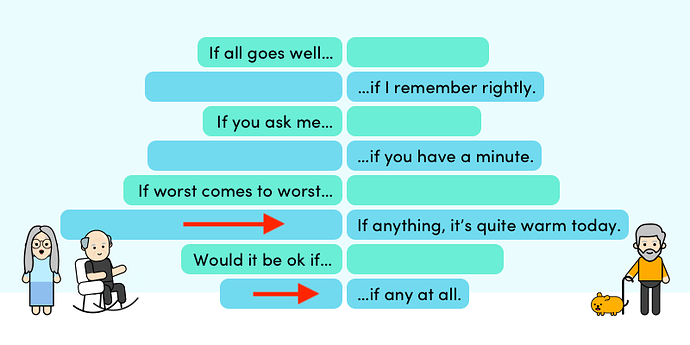Hi @Ellimaus,
In our lesson today we talked about the use of “if any” and “if anything”.
The examples in this exercise were:
It’s not cold! If anything, it’s quite warm today.
This generation is having fewer children…if any at all.
Here is some further explanation about how to use these phrases correctly:
"if anything"
- You use if anything, especially after a negative statement to introduce a statement that adds to what you have just said.
Example: I never had to clean up after him. If anything, he did most of the cleaning.
- You use if anything to change or strengthen a statement you have just made, often by providing a contrast.
Examples:
Living together didn’t harm our friendship. If anything it brought us closer together.
There was a time when social pressure made people start smoking. If anything the opposite is now true.
"if any"
You use if any to indicate the very minimum occurrence of something . In statements of likelihood or probability, they emphasize that even the bare minimum may be unlikely. However the emphasis only makes sense if it contrasts against the rest of the sentence, so the rest of the statement should refer to more than the bare minimum.
Examples:
The computer is unlikely to receive many updates, if any.
The universities have shown few, if any, signs of a willingness to change.
The two sides made little, if any, progress towards agreement.
I hope this is helpful!
Madelyn


